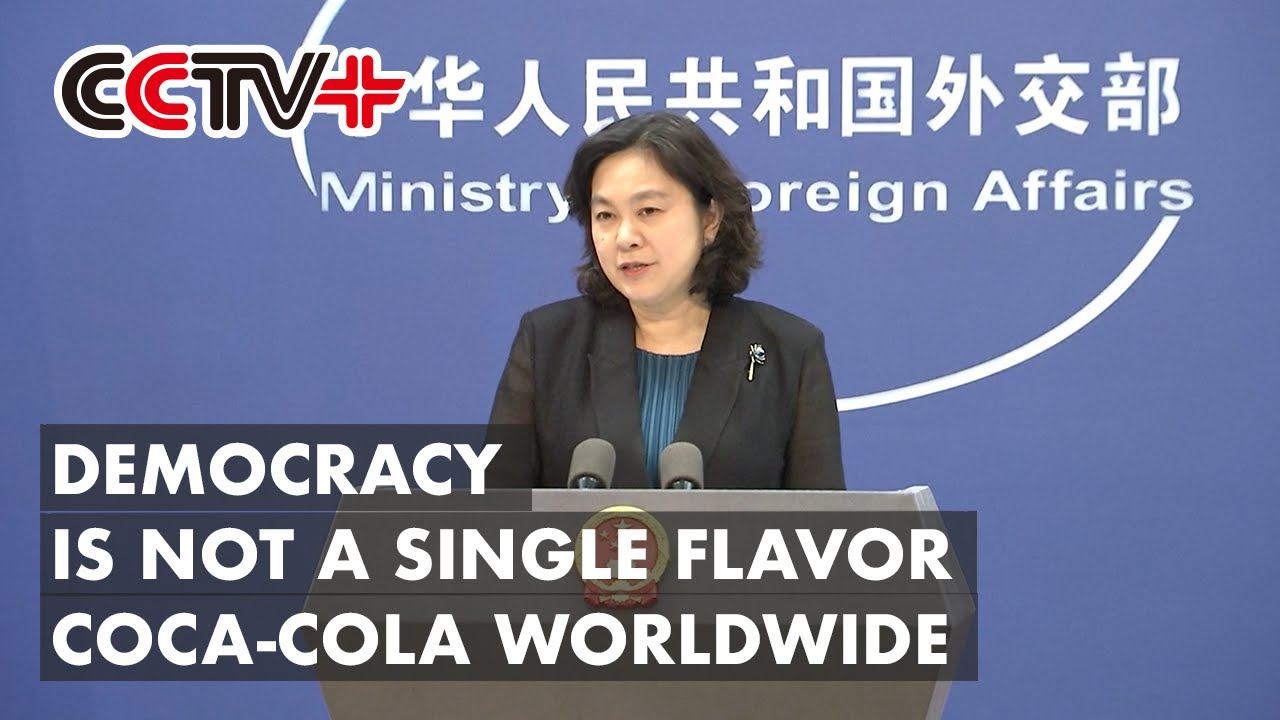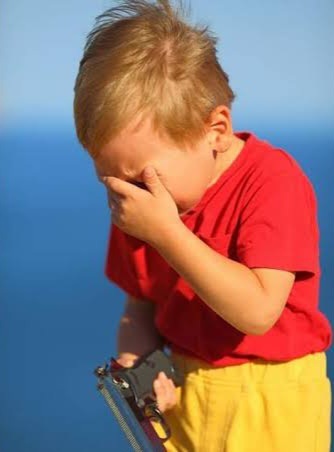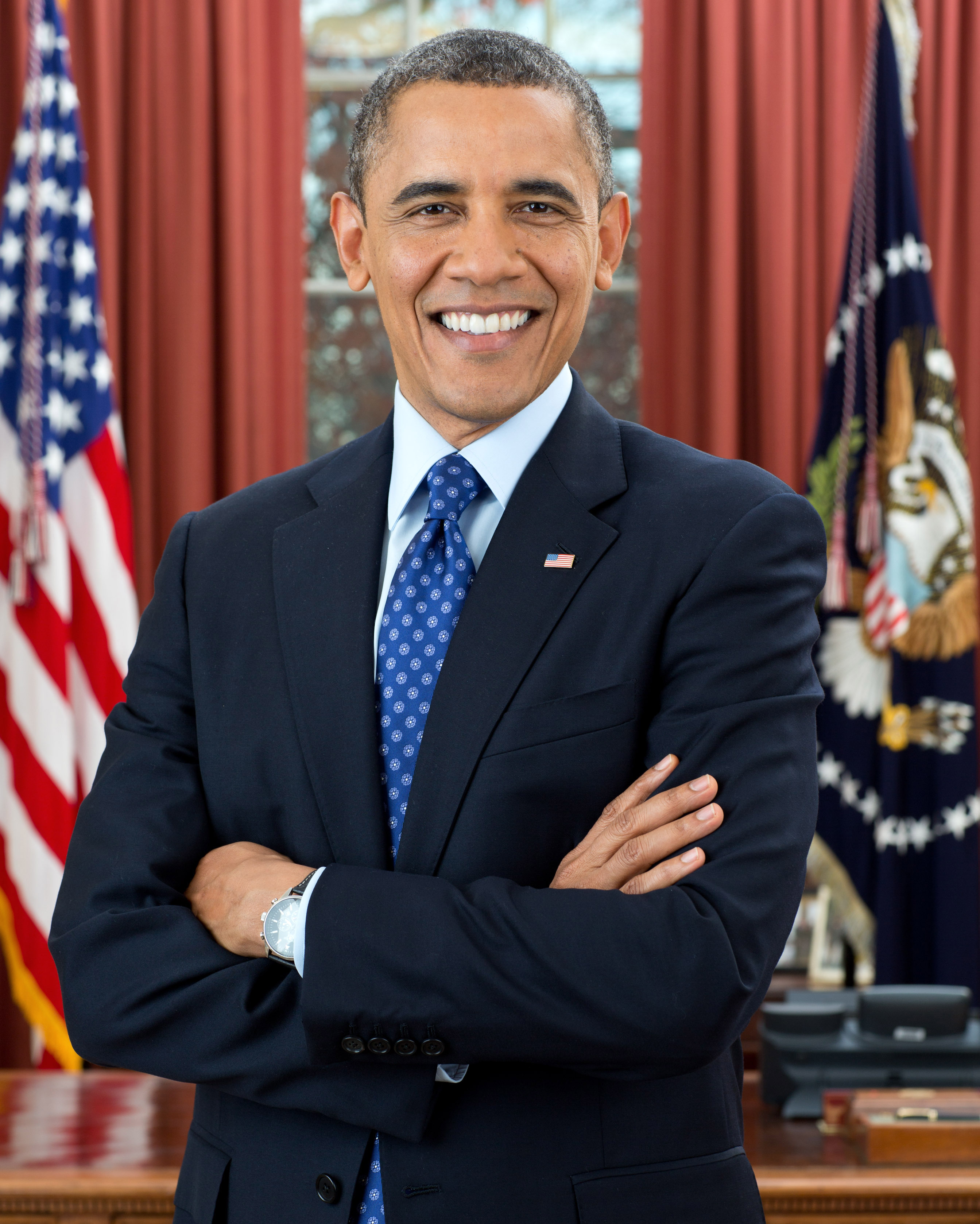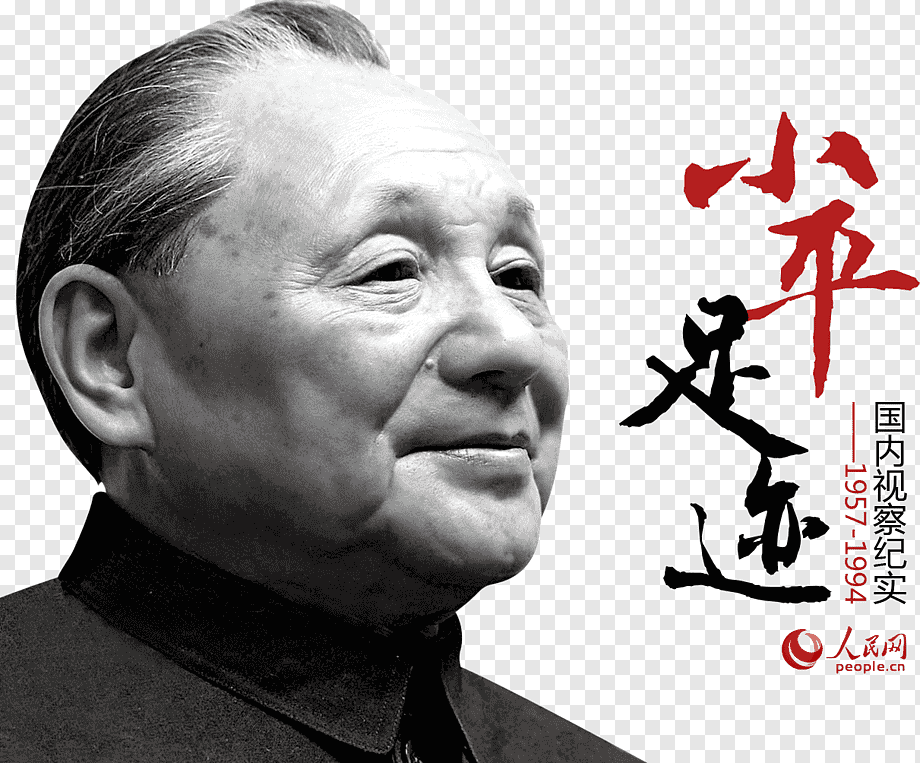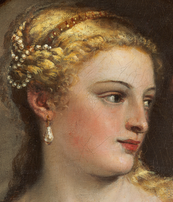That's a rather nice, if potentially overly-personal, thing to say.
And incredibly important for people with full digestive tracts.
Democracy is when corporations own the government and buy every election and control the media entirely. I am extremely intelligent.
Democracy is when you let private prisons lobby to make more actions crimes in order to increase the prisoner population.
It is quite a bit less funny when you realize Real Economiststm unironically use nonsense like the Big Mac Index
"and that's why the Middle East can't have any!"
- Generic "Redneck Comedian", circa 2009.
pretty sure every US secretary of state has said some variation of this, but only in defense of the "democracies" of client states that openly fix elections
I think, to an extent, Western-style liberal democracy is never going to work in China. In any big country, it has a nearly universal tendency to turn into oligarchy.
I think you missed her point, she's saying that westerners have a narrow view of what even counts as "democracy".
Show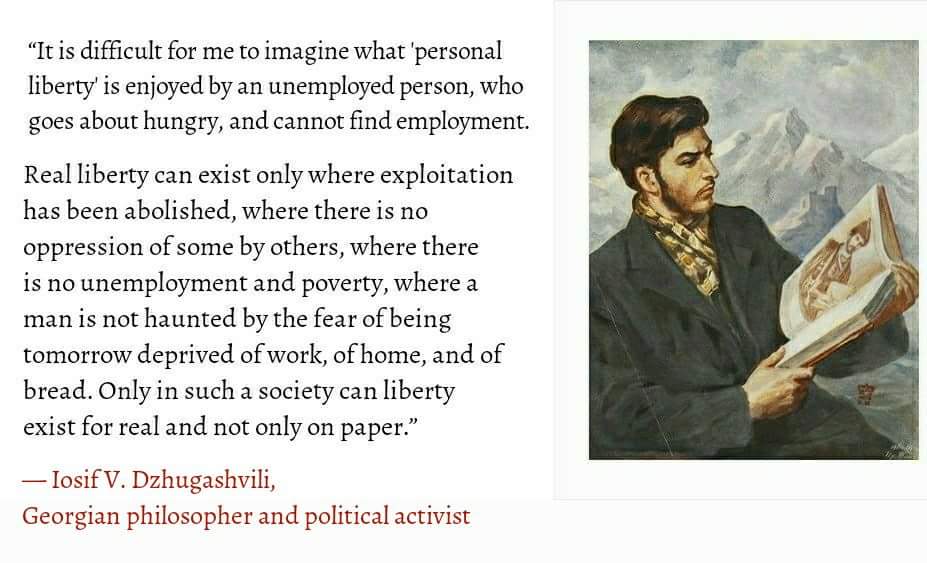
Actively robbing banks, not passovely waiting for banks to be robbed.
Also a poet, librarian-archivist, a teacher, and a journalist.
I mean, certainly one could pick out a few test cases to indicate a democracy. Do the citizens have the apparent right to...
- criticize the government freely
- due process and unpartial justice
- fair treatment of minority groups
- run for office when qualified
- free press
The US has a lot of headwinds on this short list but at least I am aware of the atrocities it has committed, can ask questions without being disappeared, and can theoretically run for office without being shot. Our democracy is ugly as hell, but at least I can see it. I question all governments that claim some higher ground.
criticize the government freely
How many peaceful protesters got bagged in unmarked vans in 2020?
Also the Chicago PD have black sites where they would disappear people without cause and their families would not be notified.
due process and unpartial justice
Yeah it would really suck to be locked up for years without a trial.
fair treatment of minority groups
Yeah that's definitely not a thing in the US I'm not even sure how you could possibly think that it is unless you got kicked in the head by a donkey.
run for office
Okay...
when qualified
Who determines this qualification?
free press
It's really easy for the press to be free when the same multinational corporations that the US works on behalf of also own the "free" press.
It's really interesting that you didn't mention the one thing that I think a democracy actually has to have: representation/reflection of the will of the citizenry.
How many peaceful protesters got bagged in unmarked vans in 2020? Also the Chicago PD have black sites where they would disappear people without cause and their families would not be notified
"Heh, don't you know, hexchanner, that not all cops are bad and a few bad apples don't condemn our great system of burgerland freedom?"

why do you think you know what youre talking about? what have you read or watched that makes you so certain of your opinions on China? can you read Chinese? have you ever spoken to someone from China?
Death to America
They watched and read the Western MSM, China Uncensored and laowhy86 and concluded that China is very very bad and evil.
Endless anti-communist, racist anti-Chinese propaganda infests the mind with brainworms.
I'm surprised they haven't called us all wumao 50 cent army bots yet. I always get that one.
someone better tell a bunch of people on weibo that they've all been shot
they don't seem to have noticed
due process and unpartial justice
fair treatment of minority groups
The US
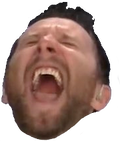
I question all governments that claim some higher ground.
Wow, such insight. I'm glad we have such an enlightened person in our midst to tell us that what if, like, all governments are bad, man?
 (and by that I mean China bad)
(and by that I mean China bad)With regards to the US and UK.
Ask people like Julian Assange or Dr David Kelly whether or not you can criticize the government. You can't ask Dr Kelly because he was murdered, and you will have trouble with Assange as he's been illegally imprisoned for 4 years.
Again, ask Assange if he is getting due process, if you can get into Belmarsh prison.
Minority groups don't get fair treatment.
The qualification for running for office is to be rich and connected. If you are not rich and connected and it looks like you might actually win, your name will be dragged through the mud by the "free" press.
The press is bought and paid for and dances to the tune of capital.
I question all governments that claim some higher ground.
Then you agree with Hua Chunying because she is literally doing the same thing.
free press tends to mean "press for hire by people with money" not "broadly representative press"
due process and unpartial justice
This is absolutely not the case in the US. Do you have any idea how common it is to just take plea deals because public lawyers are too overworked to handle their caseload?
The US has a lot of headwinds on this short list but at least I am aware of the atrocities it has committed, can ask questions without being disappeared, and can theoretically run for office without being shot.
You can criticize all you want but your criticism will be buried and ignored. You can run for office but you won't stand a chance unless you bend the knee to a major party or be rat fucked by them.
The Western demcratic system has devolved to a point where it's mostly for show. Parties only differ from each other on relatively minor policies and in most places you are simply voting for neoliberalism or more neoliberalism. Studies have shown that public opinion has pretty negligible effect on the chance of a law passing. You can see this I'm how a majority of Americans support universal healthcare but that reform never passes.
You've been taught that the choice of red coke or blue coke is the ultimate power, never questioning why you must always drink coke and nothing else.
How much movement has there been on key issues like healthcare, education, housing, affordability, climate change, and homelessness? What about LGBTQ+ rights, abortion, police brutality, and the racial prison gap?
The goal of democracy is for the government to follow the will of the people. In fact, the goal of all modern governments is to follow the will of the people. Has that happened in America?
china is much more of a democracy than the United States has ever been
Death to America
I am a Chinese person.
The traditional Western definition of a democracy is "a form of government where power is vested in the people and expressed through elections". By this definition, China is highly undemocratic because there aren't genuine competitive elections on any level.
The word "democracy" (民主) as used in Mainland China means "a system of government where leaders respond to the needs and demands of the people". This is slightly different in that a government doesn't need to be elected to be democratic, it just needs to be responsive to popular demand. China's government, especially at local levels, is very responsive to local demands, even more so than in the USA (have experienced both personally). So by this slightly different definition, China is democratic.
In Western political philosophy, China's definition is actually "benevolent government", not "democracy". You can argue that being democratic would actually just be meaningless under the Western definitions if the government isn't benevolent, and I would agree wholeheartedly. But unfortunately English sticks to the Western definitions which is why the statement "China is democratic" will raise eyebrows when said to a crowd of English speakers.
In America you can change the party but not the policies. In China, you can change the policies but not the party.
Democracy, the way you and western chauvinists describe it, is nonsense. "Power is vested in the people" is absolutely meaningless apart from a government doing what is desired. In all western countries, these 2 requirements come in complete contradiction. Elections only allow you to choose someone who will not do what you really want and need materially anyways (because their interests are only to convince you once in 4 years to vote for them, but each party is only really competing against the party next to them, and so both move simultaneously in the direction of helping those in power and the ratchet stays). China's definition is much more truthful. Democracy can only be measured by how it achieves what it's populace desires. China is leagues ahead of the west in this way
The idea that they're not elected is nonsensical though. They are elected at the local level, and then climb.
Not only that but there is absolutely no western democracy where you can replace a candidate with a simple majority vote. If we had the ability to get any candidate thrown out of their role by simple majority vote of the constituency we would have a fucking field day getting every single person in government thrown out of their positions until we got people that were actually doing what the people wanted them to do. This policy alone makes China significantly more democratic than the western democracies. Like holy shit we could get literally ANY person thrown out of government if we had that power, it would be fucking easy. We don't have that power in western systems because it's a massive pressure to keep popular support.
It’s not the 1960s anymore. Chinese democracy is more representative, responsive, and more power is locally devolved to communities than in the USA or any large western democracy.
I wouldn’t even call the USA a democracy anymore due to how gamed it is. I definitely would call China a democracy.
I am a Chinese person.
The traditional Western definition of a democracy is "a form of government where power is vested in the people and expressed through elections". By this definition, China is highly undemocratic because there aren't genuine competitive elections on any level.
The word "democracy" (民主) as used in Mainland China means "a system of government where leaders respond to the needs and demands of the people". This is slightly different in that a government doesn't need to be elected to be democratic, it just needs to be responsive to popular demand. China's government, especially at local levels, is very responsive to local demands, even more so than in the USA (have experienced both personally). So by this slightly different definition, China is democratic.
In Western political philosophy, China's definition is actually "benevolent government", not "democracy". You can argue that being democratic would actually just be meaningless under the Western definitions if the government isn't benevolent, and I would agree wholeheartedly. But unfortunately English sticks to the Western definitions which is why the statement "China is democratic" will raise eyebrows when said to a crowd of English speakers.
No that’s some kind of internalized orientalism. When you say you’re Chinese do you perhaps mean an ethnically Chinese person from Taiwan?
When I say China is Democratic I am referring to
- their elections are not corrupt and reflect the votes of the communities
- their elected officials have a high rate of turnover when compared to the west demonstrating the people are choosing and importantly changing their minds about who they want in power. Compare to the US where 90% of elections are not competitive and so it’s the political patronage network of the Dems or GOP that decide 90% of elections, before we even discuss how meaningful a choice the 2-party system offers
- fully a third of elected officials are independents, and the faction system within the CPC plays the same function as party politics within the west
- the faction system within the CPC is actually more diverse than the party system in the west with factions ranging from die hard Maoists to neoliberals, so to say it’s a one-party state is superficial since factions play the same function within the CPC and to say the 2-party system of almost all of the west presents political diversity is laughable since in the west the political spectrum is one neoliberal party that is homophobic and another neoliberal party that isn’t homophobic; this accurately paints the picture of political diversity in the west which is fucking nothing compared to the diversity of political voices in China
- their elected officials are mostly not lifelong politicians such as in the west meaning in the west we really have a permanent oligarchy (such as Biden who has been part of the ruling oligarchy long enough that he voted against desegregation) whereas in China they elect people who are from the people
- that is to say, Chinese democracy is mostly of the people with some who then climb higher whereas western democracy is a set of lifelong permanent appointments and a remarkably high proportion of them are the children of lifelong politicians
- Chinese democracy is mostly devolved and local, eg city and provincial politics are what matters most, whereas western democracy is mostly centralized
- Chinese people report in poll after poll they see that their government is responsive to their will whereas westerners report the opposite
- Chinese people report a very high level of confidence in the integrity of their democratic processes and representatives when westerners report the opposite
When I say China is a democracy I mean it in the full sense of it, not some orientalized “China is very very mysterious and sinister” sense of it.
It’s not a perfect democracy at all and I won’t make that claim but it’s a very good one and it far outstrips the west in terms of being actually representative of the people in terms of voting patterns resulting in changes of public policy and in terms of diversity of political voices and in terms of actual integrity.
Not some orientalized “benevolent dictator” bullshit but that the people ELECT their leaders for the local politics that matter most and then those local politics elect the national body leading to a system of politics that represents the will of the people based on their right to vote.
Democracy.
I am a citizen of the People's Republic of China. I have lived in mainland China, Hong Kong, and the United States.
Elections in China are, for the lack of a better word, completely fake. I've seen it myself. Very few people in China genuinely believe that voting is a way to get what they want. Candidates are vetted by the local Communist Party chapter and must generally agree with the party doctrine (or at least not oppose it) and be either a Communist Party member, affiliated with it (standing as an independent), or a member of one of the nine smaller parties. China is a one-party state. Dissent is limited to disagreeing on where the bus shelter should be built, not the fundamental direction of the country.
If you openly proclaim you oppose the direction of the country and the Government, fat chance you'll be allowed to even stand for election, let alone be elected.
I'm not saying that China's political system is bad, although it certainly has its flaws (not related to elections). China's system, by and large, works for its people. And Chinese people are perfectly happy with what they have and wouldn't ever trade it for an election-based system. But it isn't Western liberal democracy as Americans or Europeans would define it.
Do not use "Orientalism" as a moo word. You might not like what I'm saying, and that's fine. I am describing what my experiences are as a Chinese person.
Your anecdote is noted but what your anecdote claims is flatly contradicted by data.
I agree it is not a liberal democracy but I don’t think we mean the same thing by that.
Western liberal democracy is to serve the interests of capital and evidently that’s what it does.
Socialist democracy is to serve the interests of the people and according to poll after poll of Chinese people that’s what it is doing.
In terms of the machinery of democracy the data also is in high accordance with the claim that it features a high degree of integrity, data points I outlined above.
It’s true the CPC controls it’s membership but
(1) fully a third of elected officials are independent and many from the other parties for special interests
and (2) within the CPC faction system we see voices in the CPC ranging from Maoists to neoliberals so it’s not performing this function of limiting political voice as you claim but are you saying the 2-party system of the west doesn’t feature the same ideological limits? And in fact we see a much narrower political discourse in the west so clearly the limits imposed by the western liberal democracy 2-party system is actually performing that filter function aggressively than the CPC does,
and (3) a very large fraction of the population are members whereas in the west such a tiny fraction of the population are direct participants in democracy so even on the topic of membership of the CPC the Chinese model features far more inclusion than you see in the west.
The role of decentralizing power to the local and provincial levels is also very important in this discussion since it’s such a large and populous country. Like I’d agree at the national level the Will of the people is somewhat indirect since there is a hierarchical system where you vote at level A and level A elects level B so at the top of this pyramid Democratic voice is indirect but the politics that matters are mostly at level A and the consensus model of politics means that the indirect influence upon the top of the hierarchy is still much more meaningful than the pretense of the 2-party system where Teo neoliberal parties fight culture wars in lieu of politics.
It’s not a perfect democracy but it’s actually a very good one.
I think (2) is an important point by the way, when you wring your hands about the potential for CPC membership to limit political diversity you need to square that with the reality that you see much more political diversity within their system than the western liberal model even just within the CPC and ignoring the important role of elected independents.
I think you guys are both agreeing with the same point but getting tangled up on the semantics. NateNate's core point is that Western democracy focuses on elections and Chinese democracy focuses on responding to the needs of people. He says that Westerners don't consider China to be a democracy because they only look at the quality of the elections (the process) and not the results (the outcome). He's not saying that China is not democratic, he's saying that Westerners are dogmatically trained to look only at the process.
Your core argument seems to be that the Chinese system is procedurally democratic enough to count as a democracy is not contradictory to his point. However, I think it's kinda funny that by focusing in on the process, this whole debate is kind of supporting his point that Westerners tend to think more of the process than the outcome.
No that’s not my point.
My point is that the process used in China is a Democratic one which features high procedural integrity not just good outcomes but also very directly in the procedural sense.
People VOTE for their POLITICAL REPRESENTATIVES in China in ELECTIONS.
Can I be more clear?
Xi isn’t directly elected, and I think westerners fixate on this, but neither is the British Prime Minister or German Chancellor. But just as the foundation of western democracy is elected representatives to parliament the foundation of Chinese democracy is elected representatives to congresses.
When I say China is a democracy I am not talking about vibes. I mean PEOPLE VOTE IN ELECTIONS AND THOSE ELECTIONS DETERMINE PUBLIC POLICY.
Goddamn.
Like, sure the exact process and the degree of integrity varies by province and city since the devolved model of power means there are in fact variety of models in China and so it’s difficult to make grand sweeping statements but Chinese democracy is a real thing not just some vibes based sentiment or some “according my obscure Marxist theory” thing. I am talking about the very obvious and surface level procedural sense, casting a ballot into a box, as well as the deeper sense.
The foundation of Chinese democracy is the people’s congresses. These are elected by the people. These then elect the next higher level in a tiered system right to the top. It becomes indirect at the higher levels but the system also tends to decentralize power since the bottom rung actually controls the top and so tends to vote in a manner that devolves power instead of centralizing it, which is profoundly democratic and responsive.
It is a different model than what we have in the west but it is not less Democratic in the procedural sense. It’s not just vibes. The people elect their representatives and their representatives elect actual government.
It’s not even very different anyway, compared to say the Westminster system where the people elect parliament and parliament then elect the executive. It’s just scaled by another tier or two.
I understand this point, and what I am saying is that the claim that "Chinese people use elections to enact political change and express political will" is false.
China has elections. They are show elections that do not actually effect any change. Elections are not widely advertised and when it is, it's more pomp and ceremony than actual serious political contention. There are no political debates. Candidates sometimes don't even make their positions publicly known. Maybe they'll write something on their WeChat page and that's it. You show up, mark candidates off on a ballot, and deposit it in a box. It has the trappings of an election but it isn't a vehicle for political change.
If you spend some time in China or read Chinese media, you'll understand that the primary ways that citizens get what they want from politicians are much more direct:
- They complain on the Internet, post videos showing dilapidated infrastructure or frustrating encounters with civil servants. Provincial/central authorities find these posts and quickly order the relevant agencies to fix the problem if it can be quickly fixed.
- They dig through corrupt politicians' social media and find evidence, then post it on Weibo. It goes viral, anti-corruption authorities see the posts and a month later the local People's Procuratorate charges them with corruption and two months later they get executed.
- They avoid using public services that are annoying to use and complain about it to their friends. Eventually, it goes into the ear of a Communist Party member or a civil servant who tells their bosses about it. The complaint gets passed along to whoever can fix it.
- They will organise protests (see the Henan bank crisis) outside Government buildings. This usually is effective at getting things fixed but people do get scared of being arrested if the protests get too rowdy so it's not common. It's not like in the West where you can take up the whole plaza for a spontaneous protest. Protests in China are rarely to the tune of "fuck the Government", usually it's more of a "please help us" tone and this is useful for preventing the gathering from being dispersed by the police.
All of these are effective and you can call it Chinese-style democracy in action. China doesn't use elections. It's too wasteful. They're not going to spend millions on political campaigns, election security and all those frills when the informal system works way better.
Why are they wasting millions on these fake show elections? That would make even less sense. Have you considered that the fact that millions of elections are held every year actually has something to do with the government being responsive to complaints? People complain about shit in the US all the time in the same ways, and nothing gets fixed. Maybe not spending billions on campaign ads etc actually makes the elections better. If anything the idea that elections are “for show” seems more applicable to the US since no matter who gets elected things don’t get better, and the extremely expensive spectacle of the election itself is the only thing that matters.
For what it's worth, I know that your position is closer to the truth than the OP's. I never did understand how promotions work, though: is it all by relationships or are there quantitative/qualitative evaluation metrics to decide who to promote?
You're correct that this is exactly what I'm trying to say. It's a difference between the Chinese/socialist definition of democracy and the Western definition.
Dissent is limited to disagreeing on where the bus shelter should be built, not the fundamental direction of the country.
You mean exactly like in the West? What do you think would happen if a western country tried to elect a communist party in charge? You really think that particular transfer of power would be peaceful?
The dominant ideology in power will try to stay in power by all means necessary, that includes both marxism and liberalism. This is why marxist socialist states are one party states because they don't shy away from this truth unlike the liberal west.
This isn't really what I'm trying to get at.
In the West, you can be a communist, a fascist, or anything else. You can try to make a career in politics if you want and you might even succeed depending on where you are.
There are elected members of Congress in the USA who propose the country be divided up and dissolved. There are elected members of state legislatures that propose independence. In the UK, a pro-independence Scottish nationalist party controls the office of the First Minister of Scotland and the Scottish Parliament. There are plenty of republicans in the UK parliament that want to abolish the monarchy. In Japan, there is a Communist Party that aims to establish a socialist order through electoralism. They've watered down their positions in recent years but they're still there, just not that politically successful.
All of these positions would be regarded as sedition in China and suppressed. There are zero elected members of the National People's Congress who would (publicly) support Taiwanese, Tibetan, or Hong Kong independence. People in Hong Kong (including members of the Legislative Council) have been prosecuted under national security laws for advocating for Hong Kong's independence. Booksellers who sell books about the topic have mysteriously disappeared only to reappear a few months later in police custody in Mainland China.
You are correct that all political systems try to preserve their own existence. But the difference is that in China, dissenting opinions on the matter by people in power are not tolerated and will be prosecuted as sedition. In a liberal democracy, the worst that happens is social ostracisation. This is what makes liberal democracy liberal. A system that doesn't espouse these liberties is illiberal.
I'm not going to respond to any more comments here, because it seems that few people on Hexbear are actual socialists, but rather just knee-jerkingly defend any country that claims to be socialist regardless of whether they are. China largely isn't a socialist country any more and hasn't been since Mao died. Even the collective farms in rural areas are dying out. "Socialism with Chinese characteristics" is a bullshit term because the "Chinese characteristics" added are just capitalism. If you only characterise political systems as "socialist" or "liberal", and conclude that an illiberal system must be socialist and therefore good, it is not only extremely naïve but a disservice to the socialist cause.
In a liberal democracy, the worst that happens is social ostracisation.
You sure about that?
https://en.wikipedia.org/wiki/McCarthyism
https://en.wikipedia.org/wiki/COINTELPRO
Similar shit happened in Europe during the cold war too, to a lesser extent maybe. But no, the worst isn't just "social ostracisation", it's being actively persecuted by the state, up to and including assassination if you make too much noise.
You're right that liberal states tolerate dissenting speech a bit more, what they don't tolerate at all though is you taking action in accordance with your dissenting political beliefs.
I'm not going to respond to any more comments here, because it seems that few people on Hexbear are actual socialists, but rather just knee-jerkingly defend any country that claims to be socialist regardless of whether they are. China largely isn't a socialist country any more and hasn't been since Mao died. Even the collective farms in rural areas are dying out. "Socialism with Chinese characteristics" is a bullshit term because the "Chinese characteristics" added are just capitalism. If you only characterise political systems as "socialist" or "liberal", and conclude that an illiberal system must be socialist and therefore good, it is not only extremely naïve but a disservice to the socialist cause.
I've heard this opinion a lot but I remain unconvinced, it's pretty obvious to me the CPC has a much much stronger grip on the country's economy than your average western liberal party in charge. What do you say to the arguments presented in this article? https://redsails.org/china-has-billionaires/
It's, to a large degree, who you're responding to. You have to understand that many people on this platform are from the US and the US has enough issues that any alternative looks pretty good.
I'd disagree on the premise that contrarian views are somehow more feasible in the US (in other liberal democracies, sure: see the Quebec referendum in Canada). Through a system of backdoors in social media platforms and control over American media's sources, the US is able to make sure that dissent is basically unable to grow into a problem. While it's a different approach than forbidding it entirely, it achieves the same goal because dissenters will always be considered fringe groups, thus defeating the point of it being a liberal democracy. A liberal democracy is not somehow part liberal and part democracy: it describes how the two halves are combined. A liberal democracy should not only allow for these fringe groups to exist, but for them to be heard and to have a chance to influence government policy. Otherwise, it's no different than having a thought in your head that you can't share.
To a large degree, socialism has evolved within the confines of economic growth in a capitalist world. Agricultural collectivization isn't as big of an issue because the rural population is shrinking rapidly and food is no longer the core concern of the population. At its core, socialism is the principle that the economic output of a country should benefit the citizens of that country as a whole, rather than specific subgroups within it. Socialism as it was described by Marx misses the realities of a globalized world and increasingly rapid technological progress.
Liberal democracy is oligarchic period. Liberal legal frameworks exist to allow the rich to control the playing field.
If you look back at the first comment I made on this thread, you'll see that this is exactly what I said. Liberal democracy has a historic tendency to turn into oligarchy.
That is true, but you might notice that there is some space between these two categories. Germany is a pretty small country, and it's also an oligarchy.
Small comunities is probably limited to pashtun villages with a few dozen freeholders. Anything at the size or larger than the free population of classical athens seems too big.

